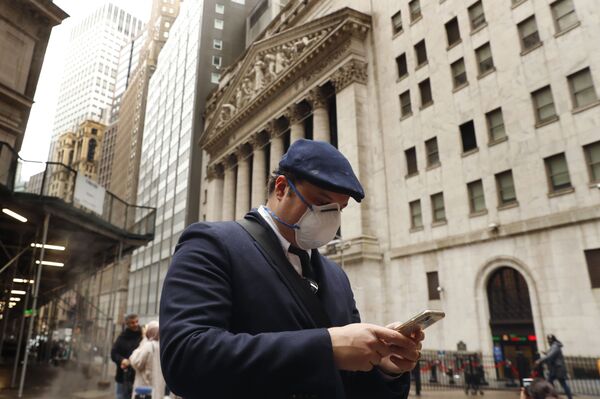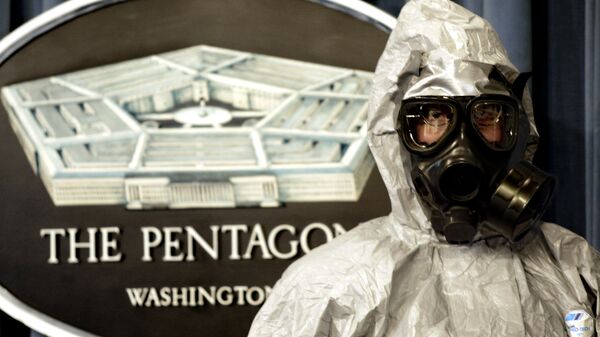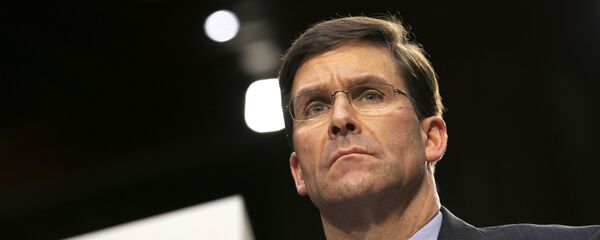Despite the Pentagon's efforts to send non-essential personnel home, either to work remotely or on sick leave, many of these staffers continue to come to work despite them possibly being responsible for spreading COVID-19 throughout the Department of Defence's (DoD) ranks, Politico reported citing anonymous officials.
"You go outside the building and every other workplace is saying go home, but there are quite a few people in the building that are not mission-essential", one official said.
One of the sources claimed that the Pentagon sent mixed signals about who and in what way they should work in a time of crisis. Politico cited a letter obtained from Senator Mark Warner from the Intelligence Committee to Defence Secretary Mark Esper, indicating that options offered by the Pentagon for its staffers have been "insufficient and poorly messaged".
"These personnel should not face uncertainty or obstacles in their efforts to preserve our individual or collective health. [The instructions] have ambiguity that is creating confusion and anxiety", the senator reportedly said in the letter.
The DoD said it offered a number of ways for people to work amid the COVID-19 epidemic. If a staffer can't work from home due to necessity to handle classified data, they can either take paid "weather and safety leave" or paid "sick leave". The Pentagon also promised to give an extension to annual sick and safety leaves to those who use them to avoid spreading the virus.
Several anonymous sources indicated in an interview with Politico that there have been several issues with taking leave that prevented many defence staffers from making use of it. Some were reportedly concerned about the leave being finite, despite the announced extensions, while others couldn't afford to lose a paycheck.

Other staffers had trouble using the teleworking option as well, according to the media. Apart from it not being an option for people who work with classified data and who are suspected of having contracted coronavirus, remote work was also not popular with other staffers, who theoretically could use it to stay home. Many Pentagon workers turned down such option due to the necessity of getting it approved by a supervisor, who usually turn down such requests to avoid workers abusing the privilege.
"If someone wants to get a telework agreement, they can ask their supervisor. If the supervisor denies it because he/she needs the worker at the office, then they will have to take sick leave if they don’t want to come to work", one defence official told the media outlet.
As a result, the Pentagon remains full of non-essential personnel, who it earlier urged to stay at home. The DoD has not yet imposed stricter rules on its non-essential staffers despite the fact that 61 troops and their family members, as well as nine civilians, have already contracted the virus.
Defence One earlier reported that Pentagon contractors have been suffering from the lack of guidance from the DoD too. Their contacts with the Pentagon didn't clarify if workers can stay at home in case of an epidemic, thus forcing visits to offices to do their jobs. Eleven COVID-19 cases have been recorded among US defence contractors since the start of the outbreak.




